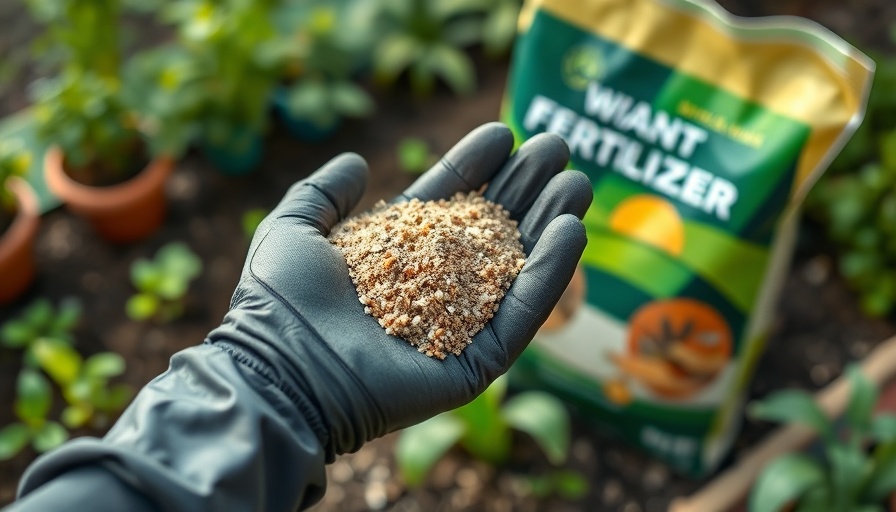
Understanding Your Fertilizer Options: The Basics
When it comes to gardening, choosing the right fertilizer can be a game-changer for the health of your plants. Homeowners often grapple with the decision between organic and synthetic fertilizers, each offering unique benefits and challenges. Understanding these differences is essential for creating a thriving garden while considering environmental impacts.
Organic Fertilizers: A Natural Choice for Healthy Soil
Organic fertilizers, derived from natural sources like compost and manure, release nutrients slowly, enhancing soil health over time. This method benefits not only your plants but also the ecosystem by nurturing soil microbes that improve overall fertility. They are ideal for garden beds and landscapes requiring long-term health. However, gardeners should be prepared for a longer timeline to see results, as nutrients are not immediately available to plants.
Synthetic Fertilizers: Quick Fixes with Caution
Synthetic fertilizers provide instant nutrient absorption, making them suitable for annuals and potted plants needing immediate nourishment. While they are often less expensive and easier to measure, their overuse can lead to soil degradation and waterway harm. Homeowners might find themselves facing a trade-off between immediate results and long-term sustainability.
Making the Right Decision for Your Garden
Ultimately, the choice between organic and synthetic fertilizers should stem from your specific gardening goals, soil quality, and environmental concerns. A soil test can help determine what nutrients your plants truly need, saving time and resources. As gardening evolves, homeowners must adapt to sustainable practices to enhance soil health and minimize environmental impact.
Choosing wisely not only benefits your garden but also supports the broader ecosystem. How will you choose your fertilizer?
 Add Row
Add Row  Add Element
Add Element 



Write A Comment